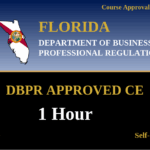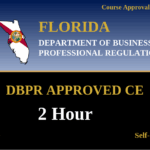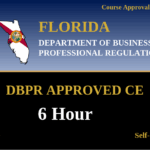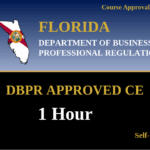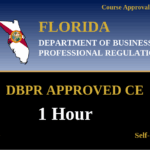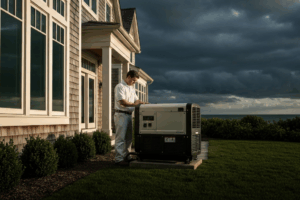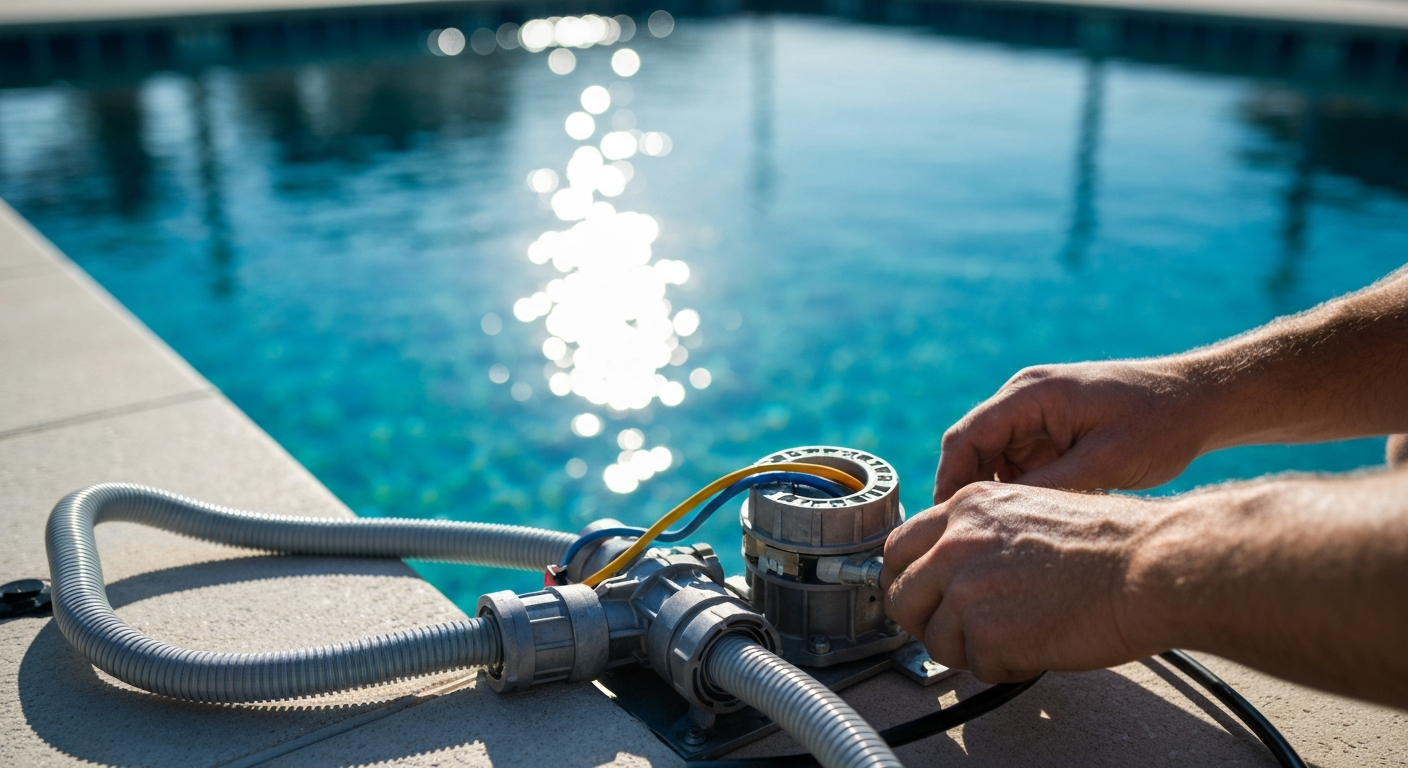
Navigating Florida’s Pool & Spa Electrical Code in 2024
Working in these highly corrosive environments, from the salt spray of coastal homes to the chemical-rich air of an indoor pool, demands a higher level of diligence. For licensed electrical contractors, staying current isn’t just about pulling permits; it’s about protecting families and property from the severe risks of electrical shock and fire. This guide will walk you through the key aspects of the Florida pool electrical code, highlighting the critical safety measures you need to know to keep your installations safe, compliant, and reliable.
The Foundation: NEC Article 680 and the Florida Building Code
In Florida, all electrical work for pools and spas is governed by a combination of the National Electrical Code and state-specific regulations. The primary reference for electrical installations in and around water is NEC Article 680, which covers everything from swimming pools and spas to fountains. Additionally, the Florida Building Code, Chapter 27, explicitly states that all electrical components and systems must be designed and installed according to NFPA 70 (the NEC). This dual authority means that while the NEC provides the baseline rules, Florida’s code solidifies their enforcement for all building and construction.
Given that Florida adopted the 2020 NEC cycle, it’s essential to be familiar with its specific requirements, as they may differ from previous or subsequent versions used in other states. This includes crucial details on bonding, grounding, and GFCI protection that are central to mitigating shock hazards.
GFCI Protection: Your First Line of Defense
Ground-Fault Circuit-Interrupter (GFCI) protection is arguably the most critical safety feature in any pool electrical system. A GFCI device works by monitoring the current flow and instantly shutting off power if it detects an imbalance, which could indicate that electricity is flowing through a person instead of its intended path. The requirements for GFCI protection requirements in pool areas are extensive.
Under the 2020 NEC, key mandates include:
- Pool Pump Motors: All single-phase, 120-volt through 240-volt rated pool pump motors require GFCI protection. This applies to both cord-and-plug connected and hard-wired motors. Whether you’re using a GFCI breaker at the panel or a covered GFCI outlet, this protection is non-negotiable for pool pump motor wiring.
- Lighting Systems: All luminaires and lighting outlets operating over the low voltage contact limit—defined by NEC 680.2 as 15 volts (RMS) for sinusoidal AC, 21.2 volts peak for nonsinusoidal AC, 30 volts for continuous DC, or 12.4 volts peak for interrupted DC—must be GFCI protected. This is especially important for underwater luminaires.
- Receptacles: All 125-volt to 250-volt receptacles located within 20 feet of the inside walls of the pool must be GFCI protected. For storable pools electrical code, this requirement is also strictly enforced.
It’s important to distinguish between a standard GFCI and a Special Purpose GFCI (SPGFCI), which may be used for circuits operating over 150 volts to ground. *Note: The following resource discusses 2023 NEC changes not yet adopted in Florida, but provides valuable insight into upcoming standards.* To dive deeper into the latest updates from the 2023 NEC regarding these devices, you can explore the nuances of how recent NEC updates have changed GFCI and SPGFCI requirements for swimming pools.
Equipotential Bonding: What Is It and Why Does It Matter?
While GFCI protection is designed to de-energize a circuit during a fault, equipotential bonding is a proactive measure to prevent dangerous voltage gradients from forming in the first place. Bonding mechanically connects all metallic parts of the pool structure and surrounding area to the same electrical potential. If all conductive surfaces are at the same potential, a person touching two different objects simultaneously cannot have a dangerous level of current pass through their body.
So, bonding what is it exactly in practice? It involves creating an equipotential bonding grid. According to NEC 680.26, this grid must connect:
- All conductive pool shells (metal, rebar in concrete, etc.).
- The metallic parts of pool equipment like pumps, heaters, and filters.
- Underwater metal fittings, including the forming shells of wet-niche luminaires.
- All metal parts within 5 feet of the pool’s inside wall, such as ladders, diving board structures, and metal fencing.
- The perimeter surface bonding of the deck or ground surface extending 3 feet horizontally from the inside walls of the pool.
This grid is typically tied together using an 8 AWG solid copper conductor or larger, which must be bare or green-insulated. This conductor is the backbone of the safety system, ensuring that stray voltage has a path to ground rather than through a person. The complexities and recent adjustments to these rules are significant, and understanding them is key. *Note: The following resource discusses 2023 NEC changes not yet adopted in Florida, but provides valuable insight into upcoming standards.* For a more detailed analysis, consider learning how 2023 NEC changes have impacted swimming pool equipotential bonding requirements.
Other Critical Considerations for Florida Pool Installations
Beyond GFCI and bonding, several other components demand strict adherence to the Florida pool electrical code.
Disconnecting Means
A readily accessible disconnecting means must be installed for all pool equipment. This switch must be located within sight of the equipment, and at least 5 feet horizontally from the inside walls of the pool. This allows for a quick shutdown for service or in an emergency without having to go to a distant circuit breaker panel.
Wiring in Corrosive Environments
Pool equipment rooms are classified as corrosive environments due to the presence of chlorine and other chemicals. Wiring methods in these areas must be robust. NEC 680.14 requires wiring to be installed in rigid metal conduit, intermediate metal conduit, or nonmetallic conduit (like PVC). Using the correct conduit and fittings is essential to prevent degradation and failure over time.
Underwater Luminaires
Lighting is one of the most hazardous parts of a pool installation. Underwater luminaires must be listed for the application. Wet-niche luminaires must be installed so that the top of the lens is at least 18 inches below the normal water level, unless the fixture is listed and identified for use at a depth of 4 inches or less.
Staying Compliant: Florida Electrical Contractor Continuing Education
The rules governing electrical work are constantly evolving. For Certified and Registered Electrical Contractors in Florida, staying up-to-date is a license renewal requirement. According to the Florida Department of Business and Professional Regulation, contractors must complete 11 hours of continuing education every two years. These hours must include 7 hours of technical subjects, 1 hour of workers’ compensation, 1 hour of workplace safety, 1 hour of business practices, and 1 hour of either Florida laws and rules or an advanced module on the Florida Building Code. This mandatory electrical contractor continuing education ensures that professionals remain knowledgeable about critical updates, including those in NEC Article 680.
Mastering the Florida pool electrical code is a mark of a true professional. It demonstrates a commitment to safety and quality that protects your clients and your business. By staying educated on GFCI requirements, equipotential bonding, and other critical aspects of NEC Article 680, you can confidently tackle these challenging but rewarding projects. Ready to ensure your knowledge is current? Browse our courses to find state-approved continuing education that fits your needs.
Frequently Asked Questions
What is the main difference between bonding and grounding in a pool system?
Grounding connects the electrical system to the earth to provide a path for fault current and to protect against overvoltages. Bonding connects all metallic parts of the pool and its surroundings together to keep them at the same electrical potential, preventing shock hazards from voltage differences between objects.
Does an above-ground storable pool need the same electrical protection?
Yes, the storable pools electrical code within NEC Article 680 requires similar protections. All electrical equipment used with storable pools, including their power cords, and all 125-volt to 250-volt receptacles within 20 feet must have GFCI protection.
Can I use an arc fault breaker for a pool pump?
The NEC does not explicitly require an arc fault breaker (AFCI) for pool pumps, which are typically located outdoors or in dedicated equipment rooms. The primary requirement is for a GFCI breaker or GFCI protection to prevent shock hazards in the wet environment.
Florida Continuing Education Courses
Explore our board-approved continuing education courses for Florida professionals:
View CE RequirementsFlorida 1 hour course on workers’ compensation
Florida 1 hour course on workplace safety
Florida 2 hours course on false alarm prevention
Florida 6 hours electrical CE course (Technical)
Florida 1 hour business practices course
Florida 1 hour course on electrical laws and rules
Disclaimer: The information provided in this educational content has been prepared with care to reflect current regulatory requirements for continuing education. However, licensing rules and regulations can vary by state and are subject to change. While we strive for accuracy, ExpertCE cannot guarantee that all details are complete or up to date at the time of reading. For the most current and authoritative information, always refer directly to your state’s official licensing board or regulatory agency.


